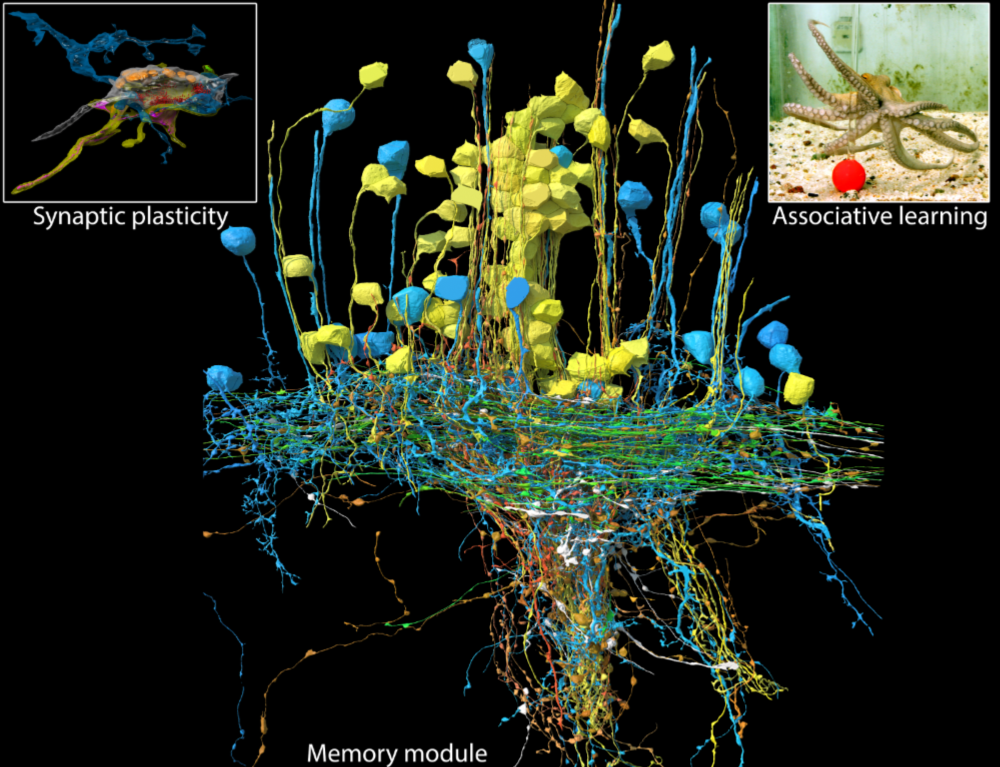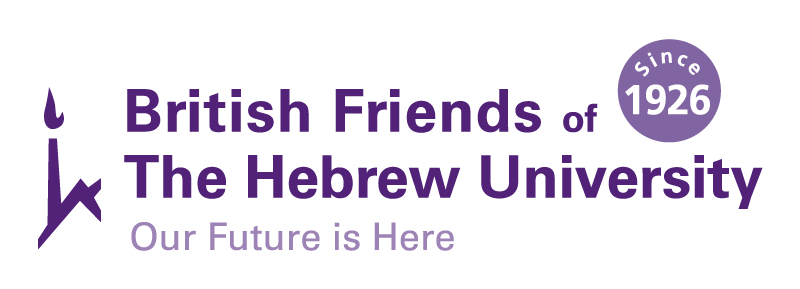
Press release
Prof. Benny Hochner of the Institute of Life Sciences at The Hebrew University and Prof. Jeff Lichtman from Harvard University have uncovered the neural architecture governing the learning processes of the enigmatic Octopus vulgaris. The research presents a promising model for studying memory networks and could enhance our understanding of cephalopod cognition and memory through the comparison with other animals including humans.
15 August 2023 Jerusalem, Israel – New study by Prof. Benny Hochner from the Alexander Silberman Institute of Life Sciences at The Hebrew University and Prof. Jeff Lichtman from Harvard University has unveiled the intricate neural architecture governing the enigmatic learning processes of Octopus vulgaris. This research introduces a promising model for delving into memory networks, with implications for both cephalopods cognition, considered the most intelligent invertebrates, and broader insights into memory processes, including those in humans.
The octopus, separated from us by 700 million years of evolution, showcases cognitive abilities rivalling higher vertebrates. Prof. Hochner’s team at Hebrew University focused on the octopus’s central nervous system’s vertical lobe, crucial for learning and memory. They aimed to compare neural networks and mechanisms across species.
Collaboration with Prof. Jeff Lichtman’s laboratory at Harvard University, leveraged innovative automated tissue preparation and new machine learning reconstruction algorithms. This cutting-edge technology enabled the cutting and sorting of ultra-thin sections, each a mere 30 millionths of a millimeter thick, constructing a three-dimensional representation of the structural elements comprising the network.

The neural network where the octopus learns not to attack the red ball Credit Hebrew University Harvard University
Prof. Hochner remarked, “Our previous studies revealed a fascinating phenomenon of long-term synaptic strengthening (Long-Term Potentiation – LTP) even within the vertical lobe of the octopus. This phenomenon, recognized as a universal synaptic process essential for learning and memory, caught our attention. We meticulously charted the connectivity of the vertical lobe using the precision of an electron microscope, achieving a resolution on the order of about 4 millionths of a millimeter. Together with Prof. Jeff Lichtman’s team at Harvard University, we engineered a robotic system alongside a sophisticated computational algorithm, uniquely capable of organizing hundreds of ultra-thin sections (each only 30 millionths of a millimeter thick) into a comprehensive 3D structure. This innovative approach enabled us to trace the connectome – namely the intricate synaptic connections among the neural elements composing the network.”
Under the leadership of postdoctoral researchers Dr. Flavie Bidel from Hebrew University and Dr. Yaron Meirovitch from Harvard University, a minute tissue volume representing the vertical lobe was meticulously reconstructed to unveil the connectome. Through the application of advanced machine learning algorithms and precise annotation, the researchers charted the wiring of the vertical lobe within octopus brains. This challenged established notions of neural network functionality in the context of learning and memory. Unlike typical models, the vertical lobe’s network operates in a feedforward configuration, like a one-way street, with information only from the input neurons to output neurons that control octopus behavior.
Central to this simplicity is the organizational structure of approximately 25 million interneurons, divided into two distinct groups: Simple Amacrine Cells (SAMs) and Complex Amacrine Cells (CAMs). The SAMs, numbering around 23 million, specialize in learning visual characteristics through synaptic reinforcement. In contrast, the CAMs, totaling approximately 400,000, play a pivotal role in consolidating activity levels.
The two types of cells send their axonal branches to connect with bigger cells in the output layer. Simple cells, that transmit “learned” information, make the big cells active, while complex cells make them less active, controlling how the brain works efficiently.
This evolutionary adaptation underscores the octopus’s unique cognitive prowess, contributing to our understanding of neural mechanisms important for cognitive functions. The research reveals Octopus vulgaris as an invaluable model organism for in-depth exploration of memory acquisition networks and opens doors to further unraveling the intricacies of cephalopod cognitive processes, enriching our understanding of memory across various species.
The study, titled “Connectomics of the Octopus vulgaris Vertical Lobe Provides Insight into Conserved and Novel Principles of a Memory Acquisition Network,” has been published in eLife. The full article is available: https://elifesciences.org/articles/84257?utm_source=twitter&utm_medium=social&utm_campaign=organic
Funding: Human Frontier Science Program (RGP0042/2019-102)
Israel Science Foundation (1928/15)
National Institutes of Health (5U24 NS109102
National Institutes of Health (U01 NS108637),
Aharon and Ephraim Katzir Study Grants
Research Team: Flavie Bidel, Yaron Meirovitch, Richard Lee Schalek, Xiaotang Lu, Elisa-Catherine Pavarino, Fuming Yang, Adi Peleg, Yuelong Wu, Tal Shomrat, Daniel Raimund Berger, Adi Shaked, Jeff William Lichtman, Binyamin Hochner
Institutions: Department of Neurobiology, Silberman Institute of Life Sciences, The Hebrew University, Israel; Department of Molecular and Cellular Biology, Harvard University, United States; Faculty of Marine Sciences, Ruppin Academic Center, Israel
The Hebrew University of Jerusalem is Israel’s premier academic and research institution. With over 25,000 students from 90 countries, it is a hub for advancing scientific knowledge and holds a significant role in Israel’s civilian scientific research output, accounting for nearly 40% of it and has registered over 11,000 patents. The university’s faculty and alumni have earned eight Nobel Prizes and a Fields Medal, underscoring their contributions to ground-breaking discoveries. In the global arena, the Hebrew University ranks 77th according to the Shanghai Ranking, making it the top-ranked Israeli institution. To learn more about the university’s academic programs, research initiatives, and achievements, visit the official website at http://new.huji.ac.il/en
